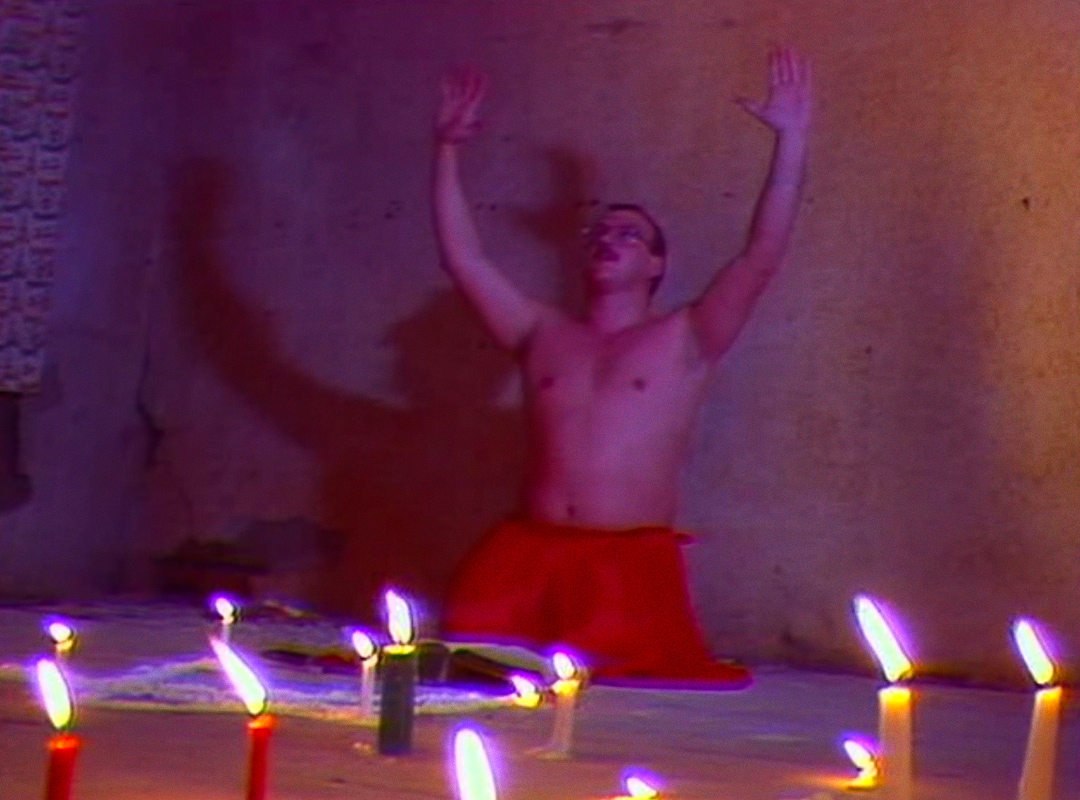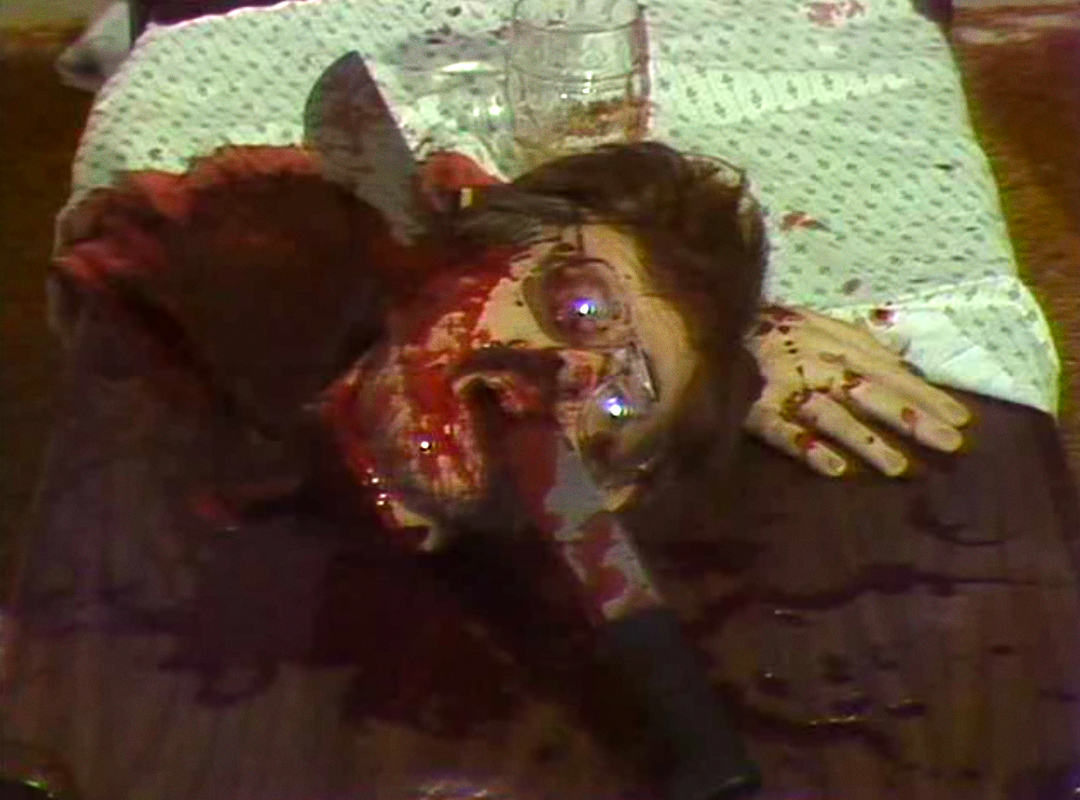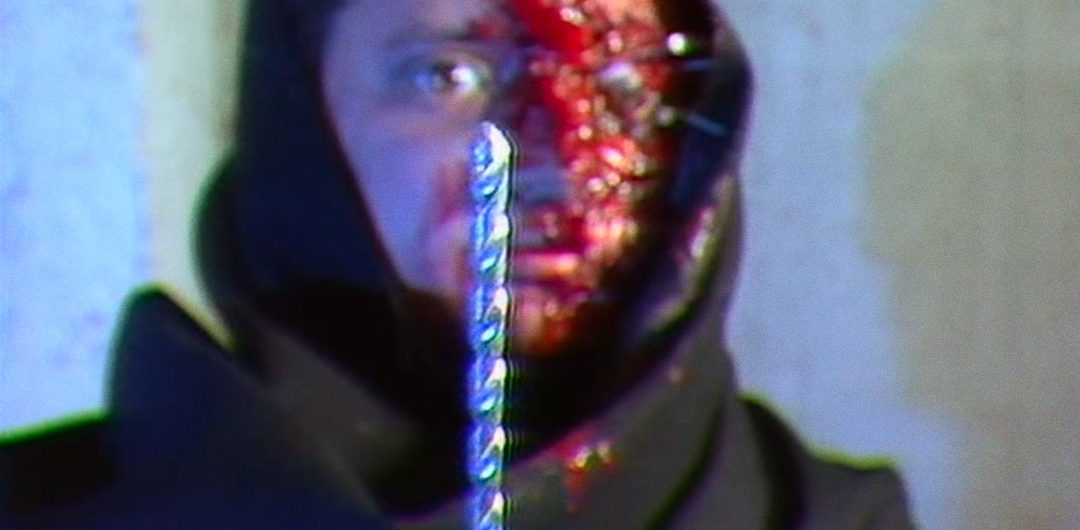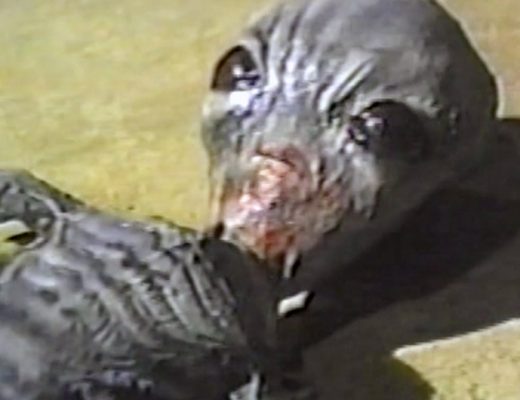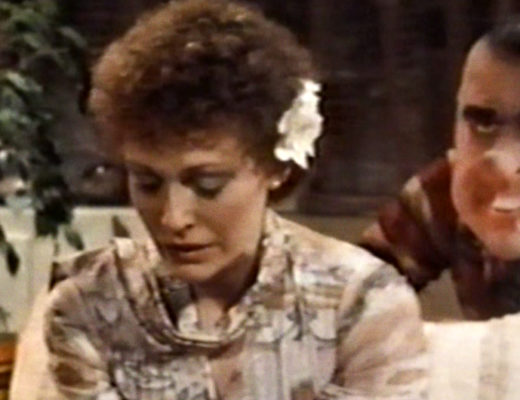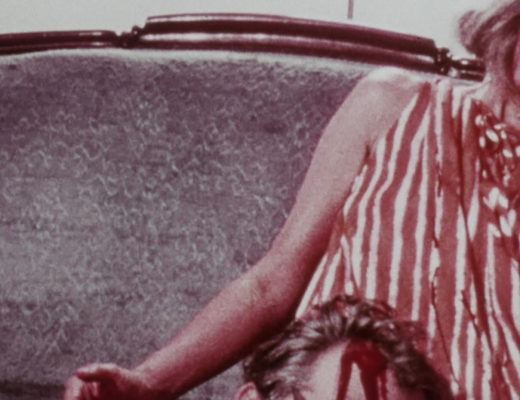This is an updated version of a review that was originally published in Bleeding Skull! A 1990s Trash-Horror Odyssey.
Here’s what I did when I was 23 years old: Go to bars. Go to shows. Eat ramen. Work as an editorial assistant to a man with a fake British accent. He would demand the whole staff to come into his office and listen to him play classical guitar. It was actually worse than you think.
Here’s what I didn’t do when I was 23 years old: Write a movie. Direct a movie. Throw blood on a bible. Set fire to a cross. Set fire to a dummy in a bathtub. Throw a severed head at a windshield. Slice off fingers. Deliver a savage beatdown to an innocent man. Hail Satan.
Olaf Ittenbach wrote and directed The Burning Moon when he was just 23 years old. It was completed a few years before Premutos: Lord of the Living Dead, and while The Burning Moon doesn’t have the same relentlessly gory mayhem, you still see plenty of exploding heads. This is the anthology where you get to witness Ittenbach’s budding genius and his commitment to the genre. It is a rare pleasure to witness.
Peter (Ittenbach) is a disaffected punk-ass deadbeat still living with his parents. His father forces him to go to a job interview. Peter answers the questions with grunts, sighs loudly, slumps in his chair, and picks at a hole in his ripped jeans. He starts rolling a cigarette mid-interview. You have to wonder if this is in any way autobiographical.
Peter is unwillingly tasked to look after his kid sister. He promptly takes some drugs and tells his sister two gloriously inappropriate bedtime stories. My brother never told me bedtime stories. He only called me an abortion, which I fully admit is an incredible put-down.
In “Julia’s Love,” a “woman murderer” named Cliff Parker escapes from a psychiatric clinic. He is a man who has “made killing his hobby” and has killed 21 victims—though, that number is about to increase significantly.
Meanwhile a young woman named Julia heads off to a blind date. I think you know where this is going—straight toward carnage and chaos. Julia ends up on a date with the psychopath, but she escapes just in time. Of course, she leaves her wallet and ID behind. Now, the killer is in her house!
“I want to have kids with you. I want to penetrate you. I want you to absorb all my love juice.”
Soon there are severed fingers oozing blood into a butter dish. There’s also a severed hand and a severed head—there’s a lot of severing in this movie. There are knives plunged into chests and, as promised, plenty of exploding heads. At some point, someone is force-fed an eyeball. There’s also a body on fire in a bathtub.
It is obvious that Ittenbach ruined his family’s house while making this short and we are lucky enough to experience it. Blood gets flung all over the place; this is a movie where every curtain, rug, and couch cushion had to be replaced. “Julia’s Love” is slow to develop; there’s a scene where a woman literally fills the dishwasher. But once it gets going, it never, ever stops. It splatters. It gushes. It squirts. Ittenbach’s gore effects get increasingly more complicated and unhinged as the story continues.
The second bedtime story “Purity” is set in Niederbayern, in 1957. On her way home at night, a lady gets assaulted. There is a shot of the perp’s bare ass. You’ve been warned. The perp growls, “You are the Purity, you are the light. And now you are wandering through the darkness.” He shoots her in the head.
Meanwhile a priest delivers an extremely lengthy sermon that kills any momentum and lulls you to sleep, just like in actual church. A member of the congregation named Justuz feels fearful. There’ve been many deaths around the village and people are pointing the finger at him.
Like “Julia’s Love,” “Purity” is slow to build. There are lengthy conversations, more sermons, and a scene where someone pours tea. It is numbing. But then there’s a completely maniacal scene of what hell looks like. There are more exploding heads as well as teeth-drilling and a good, old-fashioned game of tug-of-war using someone’s legs. There’s a corkscrew to the eyeball, blood sacrifices, and plenty of throat-slitting.
The Burning Moon may crawl a bit and test your patience, but your patience will be rewarded generously. Ittenbach clearly loves the Italian horror masters, but he manages to make the genre his own. There’s plenty of inventiveness and passion and I appreciate that he’s not afraid to ruin his family’s furniture. The Burning Moon is just the beginning of his brilliantly sticky, gory future.
“Dying is a cleansing process. It purifies the soul.”
This movie will purify you.
